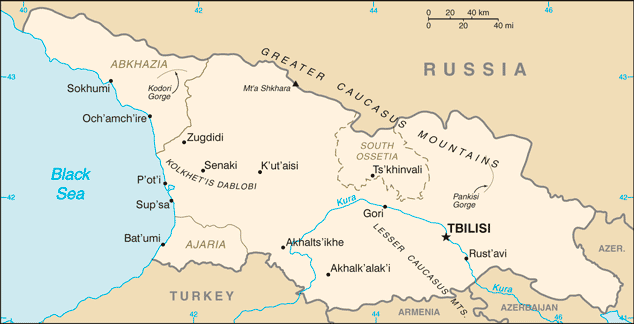Investing in Georgia


Georgia's economy sustained GDP growth of more than 10% in 2006-07, based on strong inflows of foreign investment and robust government spending. However, GDP growth slowed in 2008 following the August 2008 conflict with Russia, and turned negative in 2009 as foreign direct investment and workers' remittances declined in the wake of the global financial crisis, but rebounded in 2010. Georgia's main economic activities include the cultivation of agricultural products such as grapes, citrus fruits, and hazelnuts; mining of manganese and copper; and output of a small industrial sector producing alcoholic and nonalcoholic beverages, metals, machinery, aircraft and chemicals. Areas of recent improvement include growth in the construction, banking services, and mining sectors, but reduced availability of external investment and the slowing regional economy are emerging risks. The country imports nearly all its needed supplies of natural gas and oil products. It has sizeable hydropower capacity, a growing component of its energy supplies. Georgia has overcome the chronic energy shortages and gas supply interruptions of the past by renovating hydropower plants and by increasingly relying on natural gas imports from Azerbaijan instead of from Russia. The construction on the Baku-T'bilisi-Ceyhan oil pipeline, the Baku-T'bilisi-Erzerum gas pipeline, and the Kars-Akhalkalaki Railroad are part of a strategy to capitalize on Georgia's strategic location between Europe and Asia and develop its role as a transit point for gas, oil and other goods. Georgia has historically suffered from a chronic failure to collect tax revenues; however, the government, since coming to power in 2004, has simplified the tax code, improved tax administration, increased tax enforcement, and cracked down on petty corruption. However, the economic downturn of 2008-09 eroded the tax base and led to a decline in the budget surplus and an increase in public borrowing needs. The country is pinning its hopes for renewed growth on a determined effort to continue to liberalize the economy by reducing regulation, taxes, and corruption in order to attract foreign investment, but the economy faces a more difficult investment climate both domestically and internationally.
Georgian National Investment Agency - http://www.investingeorgia.org/
Georgian Railway - http://www.railway.ge/eng/about.asp
Georgian Stock Exchange - http://www.gse.org.ge/
Ministry of Economic Development of Georgia - http://www.economy.ge/
Ministry of Finance of Georgia - http://www.mof.ge/
National Bank of Georgia - http://www.nbg.gov.ge/
Countries that border Georgia: Turkey | Armenia | Azerbaijan | Russia
Learn more:
Back to Country Investing



